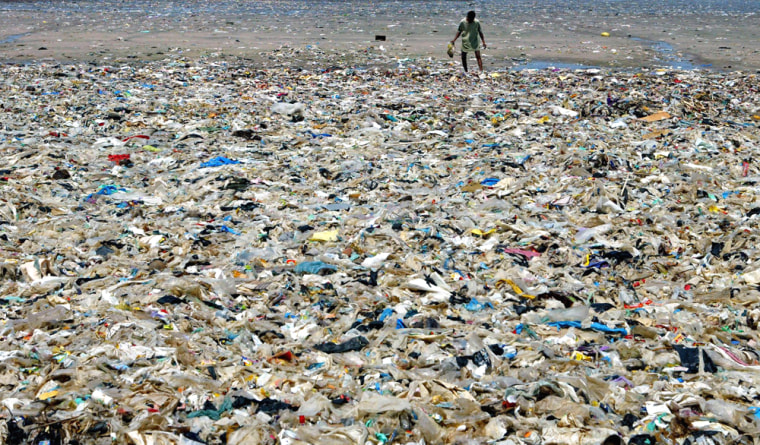The western Indian state of Maharashtra on Friday said it is banning most plastic bags, blaming them for choking drains and causing floods a month ago that left more than 1,000 people dead, most in Bombay.
Businesses caught using them would be fined 5,000 rupees ($114), while individuals would have to pay 1,000 rupees.
“Gutters choked with plastic bags caused the flooding which led to enormous losses for the state,” the chief minister said in a statement. “The media and environmental and citizens’ groups demanded that plastic bags be banned, so we are banning them.”
Bangladesh also banned plastic bags after blaming them for clogged drains and floods there, while a handful of Indian states that rely on tourism have done so to prevent littered bags becoming eyesores. Ireland and Taiwan have slapped taxes on them.
Rules on the types of bags to be exempt by Maharasthra -- possibly pouches for milk, oil and water -- will be issued next week.
Industry angry
But a group representing more than 1,000 plastic bag makers in the state, generating more than $20 million in annual turnover from 7,000 tons of plastic bags, expressed anger.
“They’ve made plastic bags the scapegoat when it is the corporation’s mismanagement that is to blame,” said Harpal Singh of the All India Plastics Manufacturers Association, referring to the city body that runs Bombay.
While some Indians recycle plastic bags, often as makeshift rain gear, they also end up snagged in trees, floating in ponds and even fluttering in remote Himalayan foothills.
Environmentalists say the bags can take up to 1,000 years to disintegrate and pose a threat to marine life, birds and other animals.
Looking for options
Some hope record-high crude oil prices might force manufacturers to seek alternatives to petroleum-based plastics.
“Paper bags are an option, or we can go back to the cloth bags we used as kids. But when plastic bags are so cheap, no one will be encouraged to use anything else,” said Chandra Bhushan at the nonprofit Center for Science and Environment.
Australian scientists are considering bioplastics made of sucrose or grain, which biodegrade on compost heaps.
“Even developed countries haven’t found a viable, economic alternative yet,” said an official at the Central Institute of Plastic Engineering and Technology.
